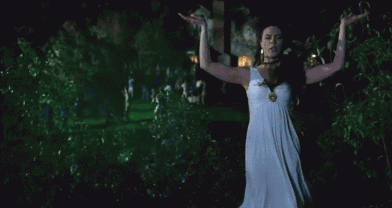While I'm a little fuzzy on historical fiction, I have encountered many books that take events that have happened to real people and destroyed real lives (I tend to enjoy depressing books). Many of these events, while well researched, are often exaggerated/warped for the
Grey's Anatomy, a medical drama, portrays what may seem like a typical surgeon's life--seeing as there are scalpels and scrubs and paddles, oh my--but if we applied the TV doctors to real life doctors, everyone would be running around in on-call rooms having sex, waking up at 3A.M. to do hair and makeup, and having a bunch of beautiful people removing hearts that are actually lamb brains.
Yeah. They use lamb brains on sets. No wonder actors are so thin.
So we certainly should take portrayals of professions and mental issues with a grain of salt. Sure, television shows have consultants, and (good) authors research until their brains feel mushy, but novels and TV shows have creative freedom.
Which brings us to the tricky definitions. How far does creative freedom really go? While there's no textbook definition for the term, dictionary.com defines "freedom" as "exemption from external control, interference, regulation, etc."
So, basically think Maryann from True Blood, and you got yourself a nice dose of freedom.
However, once you start portraying actual people, the situation gets fuzzier. And not the teddy bear kind of fuzzy.
There is probably somebody out there who now thinks that Abraham Lincoln hunted vampires. Or worse, that there is someone who invented an internet sensation and still had a lot of sex. We can say with fair certainty that Lincoln did not kill blood-suckers. This film, to me, oversteps creative freedom. However, The Social Network stayed mostly true to Zuckerberg's life. Zuckerberg did, in fact, go to Harvard; he did begin Facebook as a poorly executed strategy to score hot women (in more ways than one). The events of Zuckerberg's career did make it into the film; however, Zuckerberg's personality may be such that he sings to small children and is using Facebook to stop world hunger. Aaron Sorkin, the screenwriter of The Social Network, wrote, "what is the big deal about accuracy purely for accuracy's sake, and can we not have the true be the enemy of the good?"
Even if people did try to stay 100% true to someone's character, we all have different perspectives. What someone may see as sarcastic and cold, another may see as a strong trait. So, as long as the majority of a person's actions are accurately portrayed, creative freedom can successfully lay in the portrayal of one's personality.
Sometimes the changes to a real person's personality are made because the writer believes that to the best creative decision. Maybe they want to experiment with an internet monger who starts as a hero, but ends up as a villain. I have no problem with genuine creative experimentation, as long as it doesn't hurt anyone too terribly. However, many times, things are dramatized for the sake of the fancy Hollywood executives sitting around on leather couches with their martinis, wiping their Indie-film induced sweat off with hundred dollar bills.
Okay. So perhaps I'm exaggerating. But sometimes changes to film/television (even books) are made without the purest intention. Which makes me wonder: Are we being subjected to a majority of entertainment because of the way large corporations wish it to be? Or is artistic integrity still going strong?
Peace and Ponies,
Kira



.jpg)





